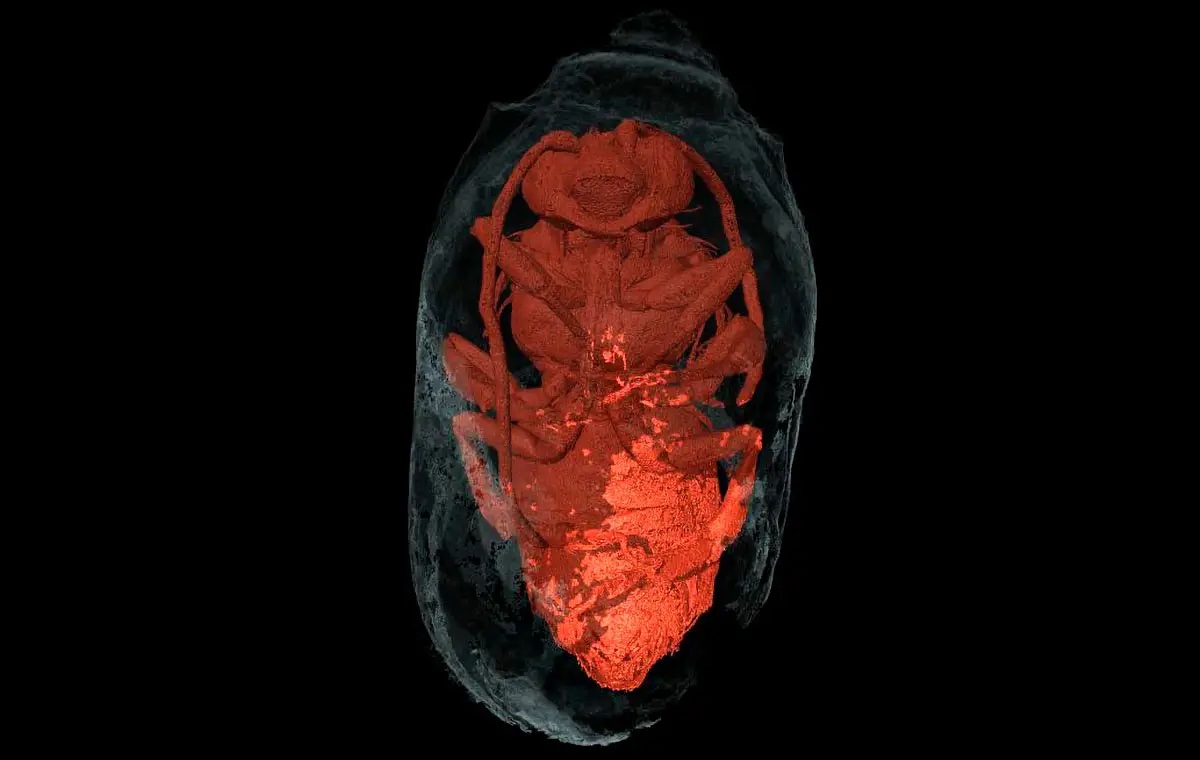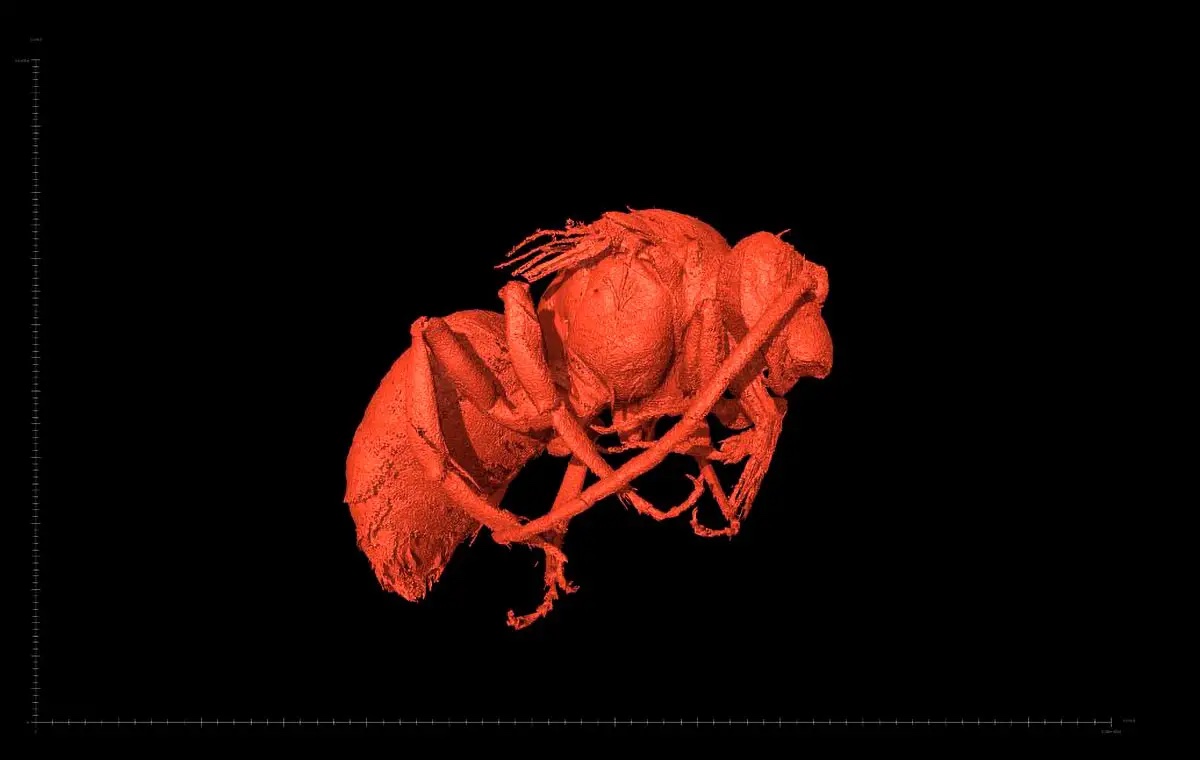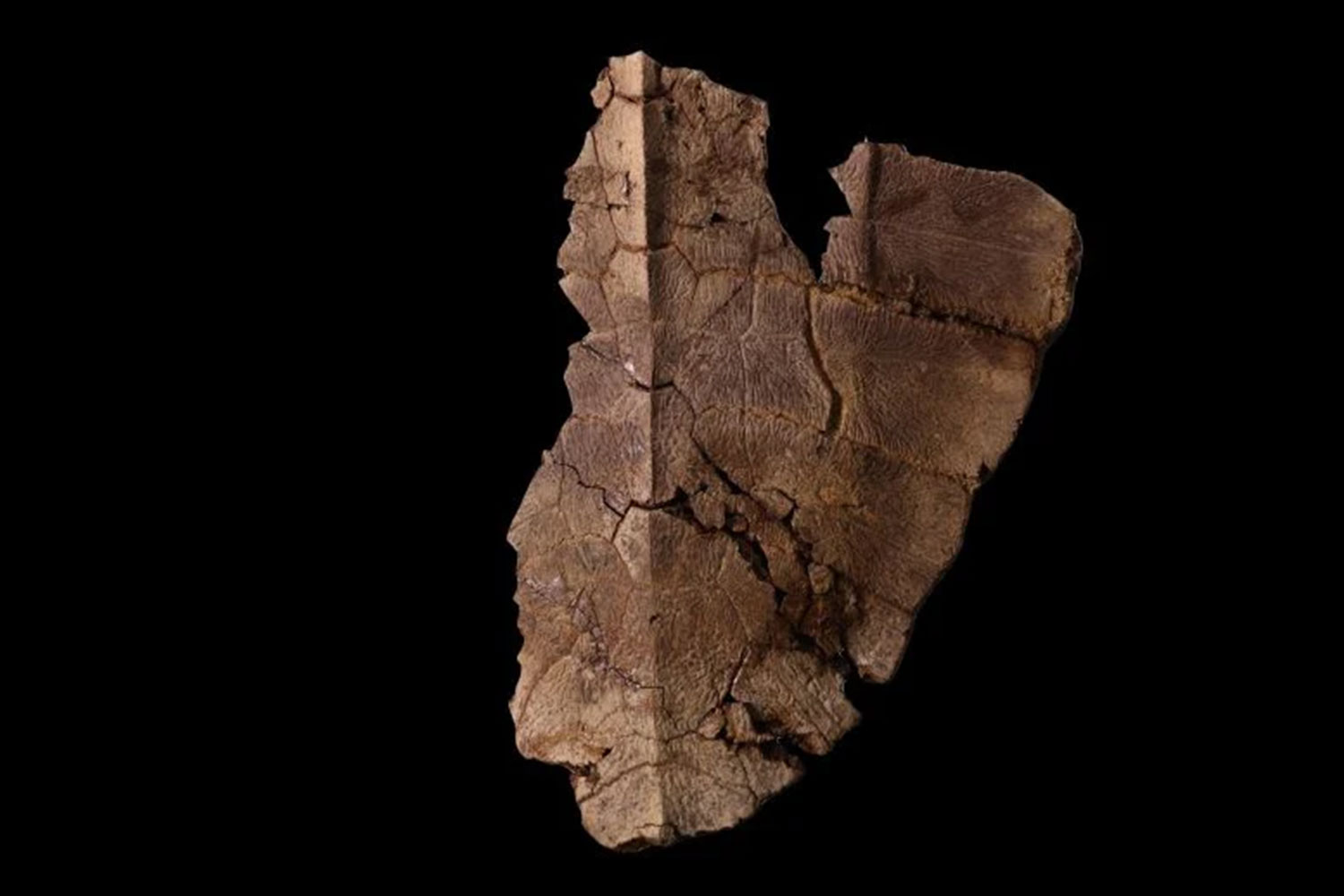Researchers have unearthed a remarkably preserved 3,000-year-old bee, a male winged insect, mummified in its cocoon alongside its sustenance. This discovery was made in a subterranean sarcophagus, where a team encountered thousands of fossilized bee hives underground, undisturbed for centuries.
The unearthed species, identified as Eucera bees, are solitary bees nesting underground. These bees typically emerge from their homes for just a few weeks each year. The preservation of this bee is notably rare, as the skeleton of this species usually decomposes quickly post-mortem.
However, this extraordinary state of preservation enabled researchers to determine the bee’s species, sex, and even the pollen left by the mother bee during cocoon creation.

Employing a specialized X-ray micro-computing tomograph, akin to a CT scan, the team meticulously analyzed the bee in minute detail, a feat seldom achieved.
The exact cause of the bee’s death remains a mystery, but researchers suggest a catastrophic event led to these bees being preserved in their dwellings. They hypothesize a sudden flooding and a drop in nocturnal temperatures, resulting in an oxygen shortage, could be responsible.
This research, spearheaded by experts from the University of Seville, followed the discovery in southwest Portugal. Principal investigator Carlos Neto de Carvalho emphasized the significance of understanding the ecological factors behind this ancient bee population’s demise and mummification. He believes this knowledge can inform current strategies for resilience against climate change, comparing ecological imbalances caused by natural events and those affecting today’s bee species.
Disclaimers:
This content and images have been licensed to use by Jam Press, edited and syndicated by https://www.znewsservice.com/.
Should you have any questions relating to this content please get in touch with Jam Press via https://www.jampress.co.uk/contact-us/






